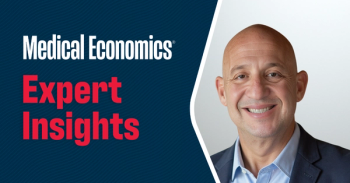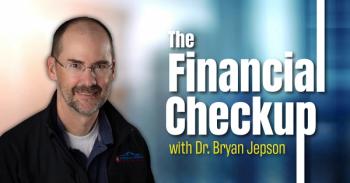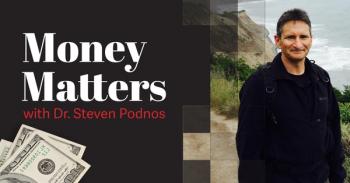
- Medical Economics August 2021
- Volume 98
- Issue 08
Pay off debt or invest for retirement?
How physicians should handle their biggest financial challenge
Physicians often finish their education burdened with a debt load that can reach six figures. But they also start their professional careers years behind their colleagues in non-medical fields when it comes to saving for retirement. Once they start earning a good salary, the biggest challenge they face is deciding whether to pay down their debt or invest for retirement.
Medical Economics spoke with Jamie Malone, principal and financial strategist, with
[Editor’s note: The transcript has been edited for brevity and clarity.]
Medical Economics: Many doctors enter practice with substantial amounts of debt and focus their efforts on paying it down, often at the expense of investing in retirement. Is this a mistake?
Jamie Malone: The advice many individuals get is to pay off all your student debts, and then start thinking about retirement. We don't necessarily view this as an either/or; we take the approach of pay down your student debt and start saving for retirement. You've been in medical school for a long time, you've gone to a residency and fellowship, and we want to make sure that you're using compound interest while time is on your side. To delay retirement investing, that can definitely have a negative impact if you wait too long.
ME: Is there a certain ratio young physicians should use when determining how much to invest in retirement versus paying down debt, and will this ratio change over time?
Malone: We don't look at it so much as a ratio. I would use more of an analogy of a balancing scale. There's going to be certain factors that would say we need to pay debt down more quickly, while others that say actually put a little bit more money toward retirement. So for example, if you have high interest-rate loans, or there could be also cases where excess cash flow is just really not there, well, then you should probably be focusing more on paying down your debt, and you might not get to save as much for retirement. On the other hand, let's say you've got really low interest rates, and you have excess cash flow, then I think that you would really want to consider saving more money for retirement, as well as working on paying down that debt.
ME: If doctors have variable rate loans, and the interest rate goes up, will this change how they approach retirement investing versus paying back their loans?
Malone: Yes. Using the scale analogy, if one side of the equation changes, then you definitely want to look at the overall picture. If interest rates shot up, and rates became a lot higher, then that would definitely be a factor to say, let's pay down that debt a little more quickly, let’s be smart about this decision between retirement savings and debt. And once again, if you need to shuffle a little bit, that's fine.
ME: When starting out, are there particular types of investments doctors should focus on building up first?
Malone: Before someone starts to save for retirement, I would suggest making sure that you have an emergency fund—I think that is really important to have at least three to six months worth of expenses. And then once you have that in place, then I think there's some great vehicles to use to invest. One of the ones that I really like is an employer-sponsored retirement plan like a 401k as often there's an employer match, which is free money. And for someone who's a high income earner, like a lot of physicians are, there's the great benefit of being able to save $1, but it doesn't cost you $1. So let's say taxes are 40%, and you save $1 into a tax-deferred account, such as a 401k or 403b, then it's only really costing you 60 cents. And I'm a big fan of that. So I think that's definitely one that you should consider.
Another would be a health savings account. While you're young, just like a 403b and a 401k, you can have tax deferral, but the benefit is you could save those funds in that health savings account. Then down the road, if you need it for medical expenses, you can take it out tax free. If not, you could just use it for your retirement needs.
Another strategy is what some people call a backdoor Roth. This works really well when you don't have any other IRA accounts. And what you do is simply make a non-deductible IRA contribution. You put money into an IRA, but there's no tax benefit, there's no tax deduction, and then you can convert that amount. So let's say you put in $6,000 this year, you don't get a tax deduction, then you convert that money into a Roth. Since you never got a tax deduction in the first place, it doesn't cost you anything, there's no tax to convert it. So I think this can be a great strategy for doctors who want to have some Roth money, but may not qualify due to the income limitations that are currently in place.
And the last thing I would suggest is just a taxable brokerage account. If you've exhausted some of the other areas to defer income, a taxable brokerage account is the way to invest. And it's also a lot easier to get that money out if you need to down the road, than it would be from a retirement account that may have some type of penalties to take money out of that account.
ME: Is there a certain point where a doctor should just pay off any existing loans if they have the means to do so? For example, maybe they have $5,000 in loans remaining and they've got plenty of money in their bank account, should they just get rid of those loans and be done with them?
Malone: There are definitely cases where kind of taking that burden off the plate would make a lot of sense. In your example, if there's a small remaining balance, and especially if the monthly payment was kind of high, then you could pay that off, free up some additional monthly cash flow, and use that to help fund your retirement or other long-term goals. I think another example is, if interest rates were really high on those loans, it would make a lot of sense to go ahead and pay that off, especially if you can't make more money in the market than you would with what you're paying on that loan. We just think it's important to balance the ability to pay down that student loan as well as make sure that you're not missing out on saving for retirement.
ME: After scrimping through medical school and residency, some physicians rapidly increase their lifestyle expenses when they enter practice. How can this hurt them long term and what are some guidelines they can follow to keep their spending in check?
Malone: Banks are willing to lend to physicians, and because of that, it's easy to get their hands on money. Having kind of deprived themselves for many years going through medical school, residency, fellowships, that a lot of doctors are ready to kind of have a more normal life. My suggestion is to think about the goals that you want to accomplish and try to balance that with your spending. It's so easy to start spending, and maybe not reconcile or realize the goals that you have. So when I was growing up, saving 10% for retirement that was kind of what a lot of people suggested. More recent studies suggest 15%. But think about it for doctors: It's going to typically be higher than 15%. Why? Because they're starting later in the game to save. So I think this can sometimes surprise a lot of physicians, going, ‘Wow, I need to save 15 or 20%’, or whatever that number might be for retirement. The other piece I would suggest is having a mindset of working toward your goals. A lot of people appreciate being able to take the rest and use that for their expenditures. So in other words, if I have a retirement goal, and maybe I'm trying to save for my child's college, pay down my debt, and I'm reaching those goals, then OK, go ahead and use the rest to live the lifestyle you want to, but don't forget to take into account saving for those important life goals.
ME: How can physicians protect their income and their families long term with insurance or other products?
Malone: If we think about the future earning potential of a young physician, it's going to be at the very highest just as they begin practice. On the other end, their financial assets are typically the lowest. So a couple of really key insurance measures would be disability insurance that would protect if a doctor had an injury or is unable to perform their work, and the other one is life insurance, premature death, especially when you have a family to take care of. I think those two are really important. One tip on the disability side, some employers offer disability insurance. The one thing that sometimes people forget is if you are making payments with pretax dollars, then those benefits would be taxable. So you want to make sure that with employer disability insurance, that if you can pay it with after-tax dollars for the premium, then any benefits you'd receive would be tax free.
ME: Markets change over time, as does the physician’s financial situation. How often should a doctor take a look at his or her investment strategy?
Malone: From the outset, I think it's important to have what's called an investment policy statement in place. This would outline the objectives, any type of constraints on the portfolio, and I would suggest at least reviewing that once a year, because life happens, things change. Make sure that your portfolio is lined up with those overarching objectives. Secondly, we recommend that clients have a strategic or long-term investment allocation. That's something that's simply not going to change from day to day or maybe even from year to year. That's for down the road. And so although that may not change very often, there still might be tactical adjustments, short or midterm adjustments that need to be made in the portfolio. If we think more recently, the stock market growth stocks have been on a tear. A lot of people think that it might be a time that value stocks may start outperforming growth stocks. Well, in that case, you'd want to make some adjustments, similarly with your own portfolio. It needs to be reviewed periodically and make sure that it lines up with those long-term objectives, and you make any short-term changes that you need to reach your goals.
Articles in this issue
over 4 years ago
Preparing your practice for an efficient flu seasonover 4 years ago
Why you should prioritize billing & coding oversightover 4 years ago
Coding office visits: The 99211 checklistover 4 years ago
How to handle patient collectionsover 4 years ago
Get paid what you're owedover 4 years ago
The ransomware threat growsover 4 years ago
Prepared medical staff key to stopping ransomwareover 4 years ago
Physician wellness post-pandemicover 4 years ago
Worried about inflation harming your investments?Newsletter
Stay informed and empowered with Medical Economics enewsletter, delivering expert insights, financial strategies, practice management tips and technology trends — tailored for today’s physicians.






